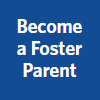Residential Treatment Facility
Download a PDF of this webpage
Hillside’s multidisciplinary Residential Treatment Facility (RTF) team provides holistic, strength-based mental health services in collaboration with youth and families to support the goal of safe reunification in the community. Together, youth and family members establish, learn, and practice skills and engage in therapeutic processes to heal from traumatic experiences and regain hope. Hillside also provides treatment at the Finger Lakes RTF Intensive Treatment Unit (ITU) for youth who cannot be served in a regular RTF unit. Additional supports and staffing ensure the safety of clients and an appropriate milieu to support treatment planning. An RTF-JJ program on the Monroe Campus serves youth with dual mental health and juvenile justice needs.
About this Program
To access RTF services, an application and supporting documentation is submitted to the youth’s county Single Point of Access (SPOA) committee for review. The referral is then sent to the Office of Mental Health for the Authorization for Review Process, which determines if the youth meets eligibility. After admission to an RTF, an interdisciplinary team guides a child’s treatment. In addition to the youth, this team is comprised of:
- Youth’s family
- Participants of the youth and/or family’s choice
- Psychiatrist
- Psychologist
- Psychiatric nurse practitioner
- Pediatrician
- Nurse
- Clinician
- Special education teacher
- Transition coordinator
- A team of unit-based youth care professionals
- Recreation therapist
- Family advocate
Children and Residential Experience (CARE)—Hillside residential programs follow the CARE model, which is rooted in the theory that children change, grow and develop through meaningful relationships. Fundamental CARE principles require Hillside programs to be developmentally focused, family-involved, relationship-based, competence-centered, trauma-informed and ecologically oriented.
Family Services/Family Involvement—Hillside is committed to creating and supporting a Family-Driven/Youth-Guided Culture. Families are essential partners in treatment.
Clinical Services—Family work, particularly provided in the home, is integral to positive outcomes of the clinical process. This work includes family therapy, family support, family engagement, skills teaching and home time. Individual and milieu therapies provide the framework for skill development. The implementation of the comprehensive multi-disciplinary treatment plan is overseen by the psychiatrist in collaboration with the family, youth and RTF providers. The psychiatrist specifically informs the process through diagnostic assessment and medication management.
Specific evidence-based models utilized by Hillside’s RTFs include: Dialectical Behavioral Therapy (DBT), Trauma-Focused Cognitive Behavioral Therapy (TF-CBT), Trauma-Informed Cognitive Behavioral Therapy, Therapeutic Crisis Intervention (TCI), and other attachment informed approaches.
Therapeutic Recreational Services—A therapeutic recreation program nurtures and enhances a youth’s holistic wellness. Matching individual strengths and needs with compatible community resources is a key element of the program. Emphasis is placed on opportunities for youth to exercise creativity in developing their leisure skills, interests, and enhancing self-esteem. We strive to maintain existing team and activity relationships, when possible, and develop new recreational connections in the community where the youth will return.
Educational Services—Hillside campus schools, approved by the New York State Education Department, provide therapeutic education service for our students. Guided by each student’s Individual Education Plan (IEP), daily instruction is designed to maximize each student’s ability to learn academically and socially. Working collaboratively with families and youth, the goal is to help students to improve their academic achievement and emotional coping skills so that they can return to their school district.
Schools situated on our residential campuses as well as our Day Treatment Centers generally provide special education services in classrooms with a 6:1:1 ratio of students to staff. Classrooms may be self-contained or departmentalized, by subject area, in order to meet the educational needs of students. All coursework must meet New York State standards. In addition to English, social studies, science and mathematics, physical education and the arts make up the core instructional program. In addition, students have access to school guidance counseling and a school psychologist for testing and educational planning and recommendations. Speech/Language Therapy and Occupational Therapy are available as related services for those students who have been identified to receive these services by the Committee on Special Education (CSE). The education staff collaborates with the students’ home school district throughout placement and in preparation for transition.
Health Care Services—Health care staff include a range of highly trained personnel who can attend to most medical and psychiatric needs experienced by youth in Residential Treatment. Our licensed clinical professionals include Registered Dieticians, Licensed Practical Nurses, Registered Nurses, Psychiatric and Pediatric Nurse Practitioners, Pediatricians and Child and Adolescent Psychiatrists. These individuals work collaboratively with program staff to ensure high quality health care is provided; and maintain strong relationships with local hospitals and medical providers to provide higher levels of specialty medical and psychiatric care, as well as emergency care. All children in residential care will have access to health care services 24 hours a day.
Average Length of Stay—It is anticipated that the duration of treatment is six to nine months (eight to twelve months for RTF-JJ) to successfully return to the family or their community.
Transitional and Aftercare Services—Discharge planning by the family and youth, in collaboration with the transition coordinator and other team members, begins at admission. Aftercare services vary, as identified by the Service Plan, continue post-discharge, depending on the family’s need, desire and the protocols of each Hillside RTF.
Eligibility
Youth ages 5 to 18 years | IQ: 50 and higher
This program serves eligible youth and families residing in the following New York State counties: Allegany, Broome, Cayuga, Cattaraugus, Chautauqua, Chenango, Clinton, Cortland, Delaware, Erie, Essex, Franklin, Fulton, Genesee, Livingston, Hamilton, Herkimer, Jefferson, Lewis, Madison, Montgomery, Monroe, Niagara, Oneida, Onondaga, Oswego, Otsego, Ontario, Orleans, Schuyler, Seneca, Steuben, St. Lawrence, Tioga, Tompkins, Wayne, Wyoming and Yates.
Locations
Monroe Campus
1183 Monroe Avenue
Rochester NY 14620
Finger Lakes Campus
7432 County House Road
Auburn NY 13021
Crestwood Campus
2075 Scottsville Road
Rochester NY 14623
Contact Information
For details about this or any Hillside program, contact us 24 hours a day at 585-256-7500 or info@hillside.com
This Program Supported by the New York State Office of Mental Health.


